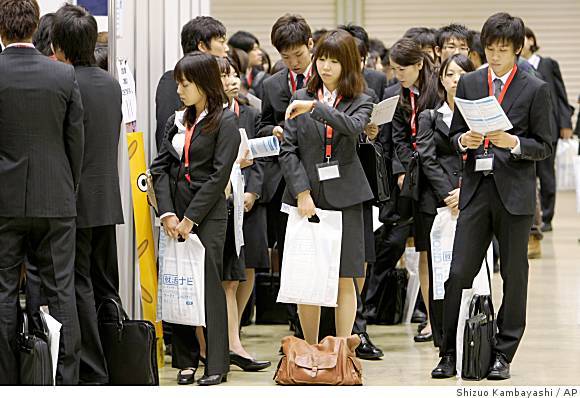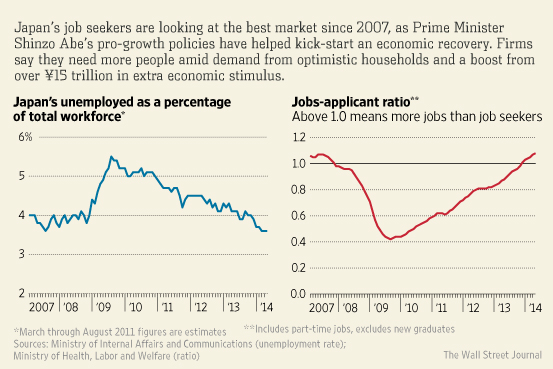The world looks to Asia as a massive workforce that produces a lot of the products the world enjoys today. iPhone are created in China, Samsung phones and television are created in Korea, Japan has been known to be at the forefront of technology, the world has become a smaller place. However a rising issue among the younger generation is entry into the work force.
Japan has struggles with the younger generations introduction into the work force. The issue in Japan stemmed from Japan’s desire to protect their older workers. As a result, many younger workers who are extremely qualified often times are more skilled than the older workers. Younger more educated workers were then kept on a temporary staff that yielded no stability that caused several young workers to move to other Asian countries like Taiwan.
In China, parents reported that their children do nothing but sit at home and play video games. The world of online gaming has grown so big all over Asia that many parents are unable to motivate their children to pursue a life outside their online avatar. The Japanese even have a word for this, an Otaku. The word Otaku in Japanese means, a young person who is obsessed with computers or particular aspects of popular culture to the detriment of their social skills. This past summer while traveling in Shanghai my father and I had a conversation with the taxi driver discussing how his son was in his 30’s unemployed and constantly playing video games at home. He did not work, he did not leave the house and only socialized with his friends online. We were shocked to hear this story as a common thread among many parents in China. The taxi driver explained that his son did not feel motivated to leave the house and search for a job as time passed, his son became less qualified and the barrier of entry began to rise rapidly. At this point in his thirties he sees no point in trying to enter the work force because the advance of his career seems handicapped.
China’s economy has resulted in fierce competition for limited labor positions. However as time goes on and the generations grow older and the current workers are unable to work, the generation to replace them will not have skills that the previous generation had. The opposite is true in Japan but the result is the same. In Japan, younger workers are leaving Japan to work elsewhere and over time once the current workers retire, the scarce amount of skilled workers will have extreme detrimental effects on the economies in Asia specifically China and Japan. This could lead to a massive problem for many Asian countries that deal with the older workforce issue. Currently, the younger generations have been so discouraged for work that the issue has already started to unravel, there are jobs, but no job applicants because either no one is qualified or the super qualified has left the country already.



Leave a Reply
You must be logged in to post a comment.